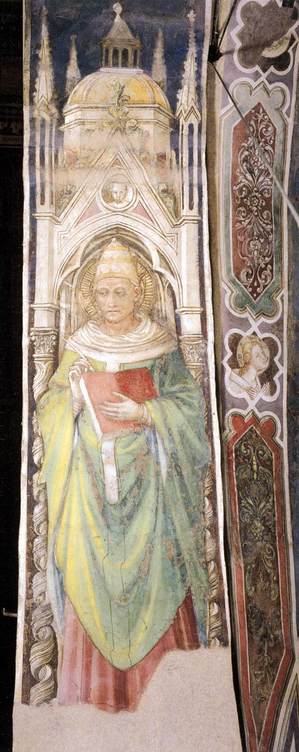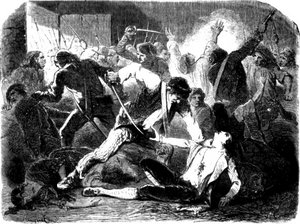
When I think of Saint Gregory I think that without him we'd know little of the person of Saint Benedict, Saint Augustine of Canterbury (& others) and without Gregory we'd know little of what the worship of God was like and how faith was developed. Others will latch on to the fact that Gregory increased the ministry of the papal office but his lasting legacy for us is his efforts in showing us the reality of holiness, the desire in understanding the other person and how Christ sees him or her. This is fact true, the papacy under his guidance was expansive for the sake of the Gospel: the salvation of souls was most important to Gregory, as it ought to be for us.
His skill in preaching, teaching, governing and listening was stunning; his plan for missionary work stellar, his trust in Providence beyond compare. Gregory worked hard to lead the Church to Christ in the unity of the Church especially with Christians in the East, and those who needed to know Christ in Britain. He was true to himself: servus sevorum Dei.
We hold in prayer today Pope Benedict, abbots and abbesses, bishops and pastors of souls, musicians, the people of Britain, diplomats, and those engaged in the work of evangelization.
Servant of the Lord's own servants,
Faith-filled shepherd of the sheep,
Gregory, as bishop, nurtured
All the Church, Christ's ways to keep.
Writing, preaching, leading, loving,
Saint Peter's steps he trod,
Raising singers up and training
Them to praise and worship God.
In his writings still he shows us
How to love and serve the Lord,
Counting not the cost and leaving
Al, so God might be adored.
To the Father, Son, and Spirit,
God the holy Three-in-One,
With Saint Gregory in glory
Let our work of praise be done!
J. Michael Thompson
Copyright © 2009, WLP
87 87 Stuttgart, Merton or
87 87 D Hyfrydol, Abbot's Leigh
You became very much like shepherds of Christ. You led the flocks of monks into the heavenly sheepfold. There you taught your flock the law of Christ, O blessed father and now you sing in the heavenly abode, and you rejoice, happy in their company. (Kontakion)


